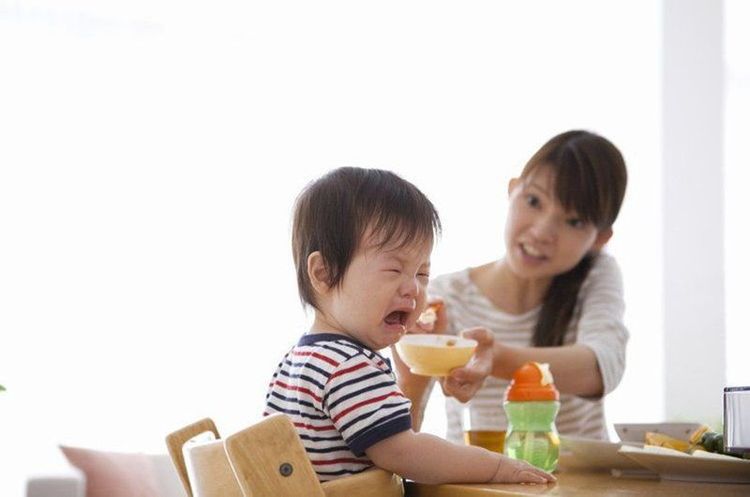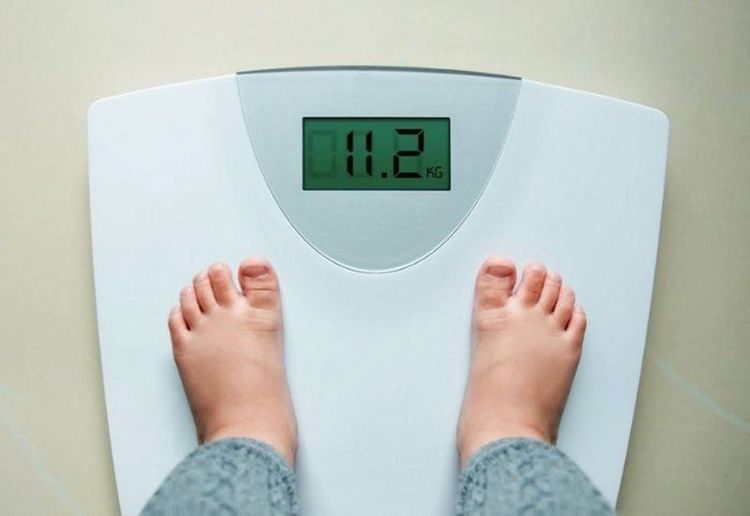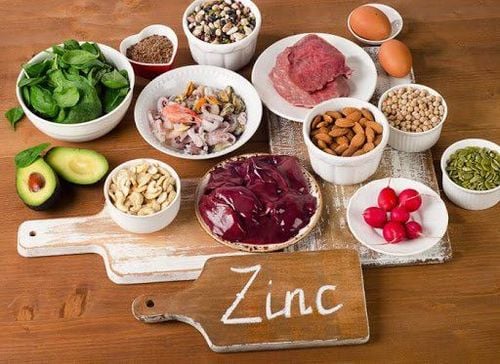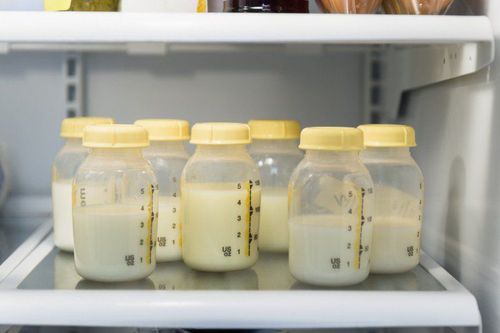Feeling frustrated about your child's eating habits? There are reasons and practical steps you can take to encourage your child to eat.
1. What is childhood anorexia?
Anorexia is an eating disorder. It is a form of self-starvation. Children and teenagers with this health problem have distorted body images. They believe they are overweight, leading them to strictly limit their food intake. It can also result in behaviors that prevent them from gaining weight. Anorexia nervosa is sometimes referred to as anorexia.
There are two types of anorexia:
- Restrictive type: Children with this type severely limit their food intake, often avoiding carbohydrates and fats.
- Bulimic type (binging and purging): Children are binge eating uncontrollably and then induce vomiting. They may also take large amounts of laxatives or other medications to purge their intestines.
2. What causes children to refuse to eat rice?
Experts do not know what causes children to refuse to eat rice. It often begins as a regular diet but gradually turns into extreme and unhealthy weight loss. Other factors that may play a role when children refuse to eat include:
- Societal attitudes about appearance
- Family influences
- Genetics
- Chemical imbalances in the brain
- Developmental issues

Children are more likely to refuse to eat if they come from families with a history of:
- Weight issues
- Health problems
- Other mental health issues such as depression or substance abuse
Children with anorexia are often from very strict and critical families. Parents may be intrusive and overly protective. Anorexic children may be emotionally dependent and immature. They can also isolate themselves from others and may experience other mental health issues such as anxiety disorders.
3. What to do when a 2-3-year-old refuses to eat rice (solid food)?
When a 2-3-year-old refuses to eat rice (solid food) and has been eating porridge for too long, it can lead to refusal of food, anorexia, malnutrition, and stunting. Moreover, if children continuously eat only pureed foods, their chewing skills may not develop well, making it difficult for them to adapt to the eating environment and diet at kindergarten, which can result in weight loss and weakened bodies.
Nutritionists recommend that parents encourage children to start eating solid food around the ages of 2 to 3, as they have usually developed many teeth by then. To do this, gradually transition their food from porridge to mashed rice, then soft rice, and eventually to regular rice.
To help children eat more easily, parents should prepare a variety of delicious foods with soft ingredients for gradual adaptation. Additionally, parents can help their children practice chewing by providing nutritious snacks that are crispy and dissolve quickly in the mouth to stimulate chewing development.
Nowadays, many parents complain that their children refuse to eat rice, and when asked, the main reason often is that parents do not know how to prepare suitable meals for their children. Some are reluctant to cook, opting to buy ready-made nutritious porridge, while others cook adult meals that are too similar for young children. This leads to poor eating habits, difficulty chewing, and swallowing, ultimately resulting in a fear of rice.
Nutritionists advise parents to teach their children how to chew by modeling eating slowly and describing the food, such as how delicious it is and its sweet taste, encouraging children to imitate. In the beginning, if children show disinterest in eating rice or only manage to eat a little, parents should not be overly anxious. Just take it one day at a time. If worried about children lacking energy, they can supplement with nutritious porridge and snacks.

4. What happens when children refuse to eat rice?
Refusing to eat rice and malnutrition can harm almost all organ systems in the body and can be fatal. It can lead to health issues with:
- The heart: Nutritional damage can arise from malnutrition or repeated vomiting. Children may have slow, fast, or irregular heartbeats. They may also experience low blood pressure.
- Blood: About 1 in 3 children with anorexia have low red blood cell counts (mild anemia). Approximately half of children facing this health issue have low white blood cell counts (leukopenia).
- The digestive system: Normal bowel movements can slow down with severe dietary restrictions and significant weight loss. Weight gain and certain medications may help alleviate this condition.
- The kidneys: Dehydration from anorexia can lead to concentrated urine. Your child might also urinate more frequently. This may occur when their ability to concentrate urine is compromised.
Changes in the kidneys usually return to normal when your child reaches a normal weight.
• Endocrine System: In girls, the absence of menstruation is one of the most noticeable symptoms of anorexia. It often occurs before significant weight loss and may continue even after normal weight is restored. Lower levels of growth hormone may also be found in adolescents with anorexia. This can explain the stunted growth sometimes seen in children with eating disorders. Normal eating habits typically restore normal growth.
• Bones: Children with anorexia have a higher risk of fractures. When symptoms of anorexia begin before peak bone formation (which usually occurs during the adolescent years), there is an increased risk of reduced bone mass or bone loss. Bone density is often low in girls with anorexia, who may not get enough calcium in their diet or absorb enough calcium.
To help 2-3-year-olds develop physically and attain optimal stature, parents should supplement their diet with products containing lysine, essential trace minerals, and vitamins such as zinc, chromium, selenium, and group B vitamins to meet their nutritional needs. Additionally, these essential vitamins support digestion, enhance nutrient absorption, improve appetite, and promote overall development.
Be sure to regularly visit Vinmec.com to update yourself with useful information for caring for your child and family.













